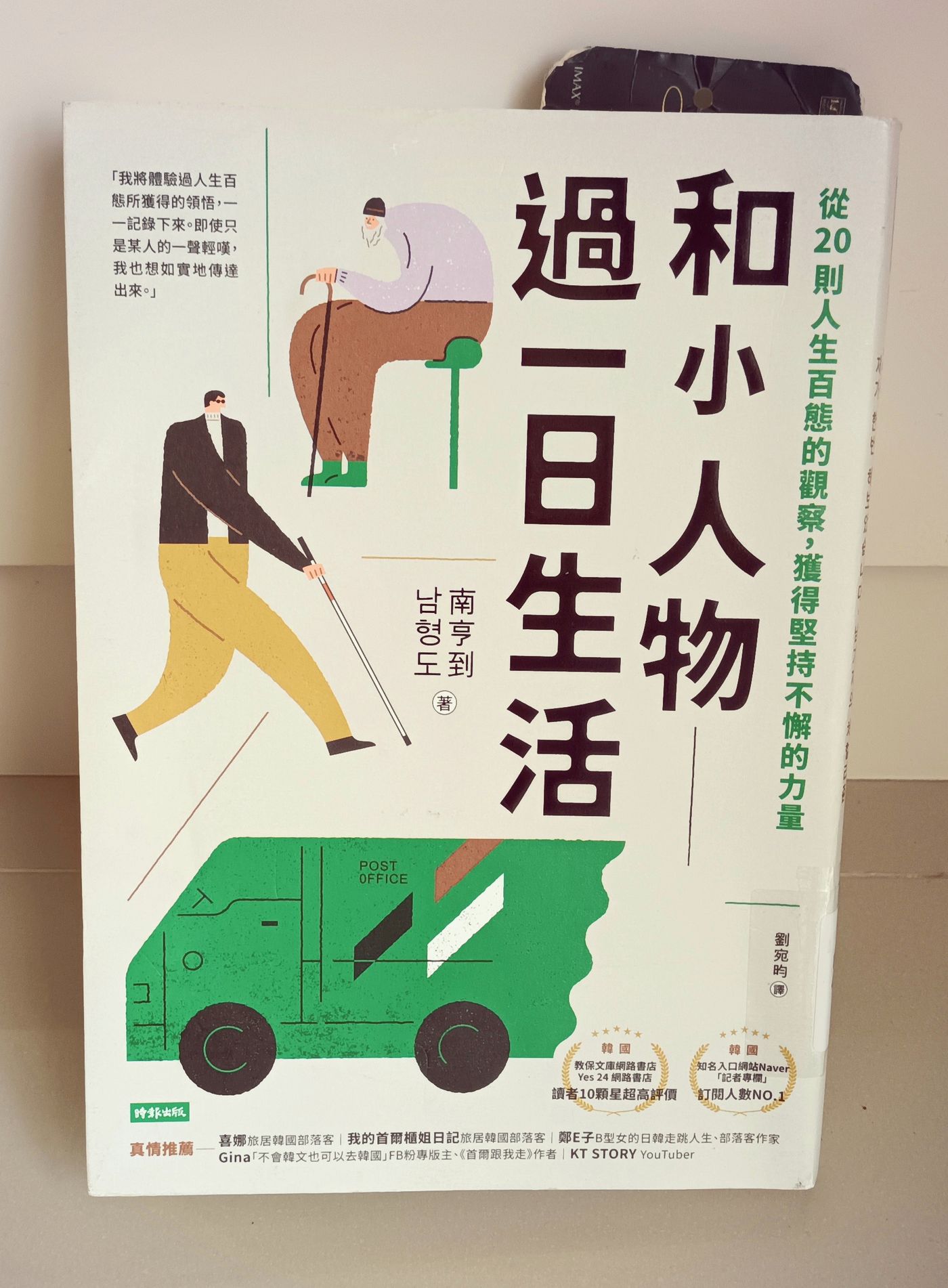
在台港人 • 自由插畫家 • 實體書狂熱者 • 接受委託 三四天不畫畫,血液循環會變差。四五天不看書,血清素會減少。 IG: @bunnyxmyers @evy.myers
Put on their shoes and walk for a day: "A Day in the Life with Little People"

"If you want a little change, you have to guess, understand and empathize with their lives."
There is a saying in English "walk a mile in someone else's shoes" (walking a mile in someone else's shoes), which means that before criticizing others, you should compare your heart to your heart, think about and empathize with others' situations and feelings.
It is easy to empathize with people whose status is similar to your own, but it is not easy to empathize with vulnerable people who are physically impaired and in a worse environment than yourself.
The author is a journalist who is good at and keen on observing all kinds of social conditions, and has launched a huge and diverse "Real Experience Project" - a real experience of the daily life of different types of disadvantaged people. This book is the collection of his insights .
During the reading process, I sometimes sighed, sometimes felt sad, and also had the eye-opening feeling of "Oh, it's like this". The objects of experience in the book are all the living but inconspicuous little citizens that we can see on the street: mothers with children, the elderly, cardboard recyclers, and some who silently guard, rescue and serve at times and places that are invisible to the public. People: stray dog shelter teams, public funerals for the lonely dead, firefighters, cleaners, postmen, etc.
"Please don't treat them as someone from another world. I hope you can treat them like your neighbors and friends. Even just caring can be a great help in their lives."
Cleaning workers are one of the most important and indispensable jobs in society, but they are always the worst paid and silently performed by the most neglected groups at the bottom of society.
When my family is disposing of broken items or garbage with can lids, my mother always tells me to put the lids of the cans among other garbage, wrap the glass fragments in newspaper first, and put a "glass fragment inside" on it. Reminder words. All of this is for the safety of the cleaning aunt.
I have seen in social documentaries that some cleaners are often cut by glass shards that are discarded without wrapping. They cannot even take time off to recuperate because of their wages, and they have to continue to work in places with poor sanitation environment with their wounds.
When you go out to eat, don’t eat a table full of food scraps, recycle tableware after meals, put rubbish such as wipes and other rubbish on plates to make it easy for waiters to clean up, keep clean and tidy in public toilets, don’t spit, don’t go anywhere Throwing away trash and cigarette butts... These efforts are not only for the public morality of others, but also for the empathy of those who want to clean up the aftermath for you. '.
"How about preparing for yourself who might encounter the same situation one day, and how about creating a better environment together?"
Among them, the most sentimental thing I saw was the author's experience of a day when the visually impaired went to see the cherry blossoms. This chapter reflects how unfriendly the city is to the visually impaired in terms of planning, which is tantamount to indirectly depriving them of their ability to live independently. Some people wonder why they have to work hard to see the cherry blossoms when they can't see, but they ignore that the visually impaired can still enjoy the breath of spring with hearing and other sense of touch, and they also ignore their need to approach and interact with people.
In Taichung City, where I live now, even the locals criticize "pedestrians are the most inhumane", because many sections of the street have no pedestrian paths, and even if there are, it is useless. The private car is fully parked, or is occupied by the extended building/personal belongings of the store, or even completely cut off from the road.
Even I hate walking on the street more and more. How can the visually impaired and wheelchair people survive? ? How is this different from reducing the range of life for people with disabilities and confining them to their homes?
"The so-called 'thinking from a woman's point of view' is to imagine what it is like to live with a woman's body and mind. And 'to think from a woman's point of view' is to imagine what a woman is burdened with in the family or society. mission life.” Morioka Masahiro "Herbivorous Man's Pure Love Notes"
The best expression of this sentence should be the author's experience of wearing a bra and experiencing parenting . If all men have experienced these two tastes (personally I think they should experience the use of physiological products (laughs)), there should be no more people who easily say that housewives are really easy, or point to women who don't wear bras. say.
There was once a reality show in Hong Kong called "Battle of the Rich and Poor", which explored structural poverty and the disparity between the rich and the poor in Hong Kong. Many of the participants were wealthy individuals and senior executives of both fame and fortune. I have no doubt that this kind of experiential activity will allow more people to see and understand the situation of the disadvantaged, but how many powerful people will be inspired by this temporary experience, enough to push them to improve the suffering of the lower class from the top down condition?
Or just know, and then no then? I agree with the author's philosophy that making changes is the first step, but it must not stay at the first step forever.
Recommendation: ★★★★★★
Like my work?
Don't forget to support or like, so I know you are with me..
Comment…